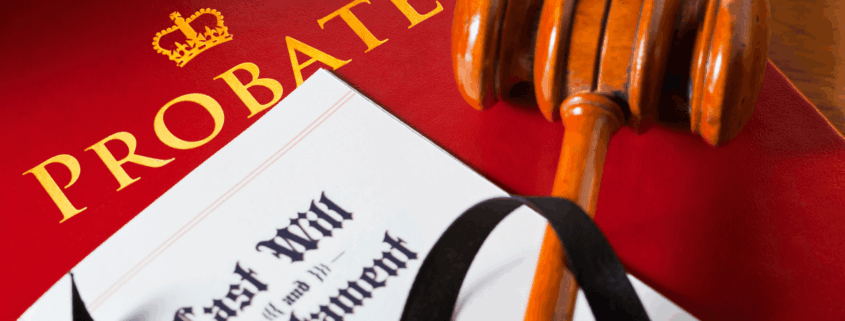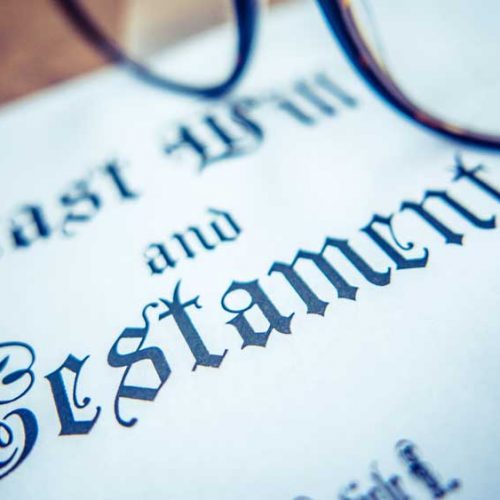Navigating Probate When the Executor Lives Outside South Carolina
Being asked to manage a loved one’s final affairs is a significant responsibility, often undertaken during a time of grief. When that responsibility involves handling a South Carolina estate, specifically in the Greenville area, while you live hundreds or even thousands of miles away, the complexities can feel overwhelming. Suddenly, you’re not just dealing with loss, but also with unfamiliar state laws, logistical hurdles, and the challenge of managing assets from afar.
Imagine receiving the call: you’ve been named the Personal Representative (often called an executor) for a relative’s estate in Greenville County. You live in California. How do you secure their home in Simpsonville? How do you access their bank account in Mauldin? What are the specific rules of the Greenville County Probate Court you need to follow? These are common, pressing concerns for non-resident executors.
The process of settling an estate, known as probate, involves identifying assets, paying debts and taxes, and distributing the remaining property to the rightful heirs or beneficiaries. It requires careful attention to detail and adherence to legal procedures. Adding distance to this equation introduces unique challenges, from practical difficulties in managing property to navigating South Carolina’s specific legal requirements for those serving from outside the state.
Can Someone Living Outside South Carolina Serve as Personal Representative?
A common first question is whether South Carolina law even permits someone living out of state to take on this role. The good news is, yes, South Carolina generally allows non-residents to serve as Personal Representatives for estates within the state. The South Carolina Probate Code, specifically Section 62-3-203, outlines the priority and qualifications for appointment, and it doesn’t automatically disqualify someone based solely on their residency outside the state.
Whether you were named as Executor in a will or might be appointed as an Administrator by the court (if there’s no will or the named executor cannot serve), the residency rules apply similarly. You must still meet the basic qualifications applicable to any Personal Representative in South Carolina:
- Be at least 18 years old.
- Be of sound mind (not legally incapacitated).
Unlike some states, South Carolina doesn’t automatically bar individuals with felony convictions from serving. However, the probate court, particularly in formal proceedings, can find someone “unsuitable” to serve. If concerns arise about a nominated PR’s fitness, the Greenville County Probate Court could hold a hearing to determine suitability.
While being an out-of-state resident isn’t an automatic disqualifier, South Carolina law does impose specific requirements to ensure the court can maintain oversight and that legal processes can be handled efficiently, even with a geographically distant executor. These often involve appointing a local point of contact and potentially securing a bond.
The Core Duties of a Personal Representative: Amplified by Distance
Serving as a Personal Representative carries significant fiduciary duties – legal obligations to act in the best interests of the estate and its beneficiaries. When you live outside Greenville, fulfilling these duties requires extra planning and effort.
Key responsibilities include:
- Identifying and Gathering Assets: This means locating and taking control of everything the decedent owned in South Carolina – bank accounts in Greenville, real estate in Taylors or Greer, vehicles, investments, personal belongings. Living elsewhere makes physically inspecting property, accessing safe deposit boxes, or dealing with local banks much harder.
- Notifying Interested Parties: You must formally notify all heirs, beneficiaries named in the will, and known or potential creditors about the estate administration. This involves specific legal notices and deadlines.
- Paying Debts and Expenses: Valid debts of the decedent, funeral costs, taxes (income, potentially estate), and the expenses of administering the estate must be paid from estate assets before any distributions are made. Managing this from afar requires careful record-keeping and potentially local assistance.
- Managing Estate Property: If the estate includes real estate in Greenville County, you’re responsible for its upkeep, insurance, property taxes, and potentially its sale. Overseeing maintenance, repairs, or preparing a house for sale from another state presents obvious logistical challenges.
- Filing Court Documents and Tax Returns: Probate involves submitting various forms and reports to the Greenville County Probate Court on schedule. Final income tax returns for the decedent and potentially income tax returns for the estate itself must also be filed.
- Distributing Remaining Assets: Once debts and expenses are paid, you distribute the remaining assets to the beneficiaries according to the will or, if no will exists, South Carolina’s intestacy laws (laws determining inheritance order).
The Non-Resident Reality
Each of these tasks is complicated by distance. Simple actions like getting mail forwarded, meeting with a local Greenville real estate agent, or appearing for a court hearing require significant coordination. Time zone differences can hinder communication, and the need for travel adds expense and time commitment to an already demanding role.
South Carolina’s Specific Rules for Out-of-State Executors
To address the challenges of distance and ensure accountability, South Carolina law includes specific provisions for non-resident Personal Representatives. These are designed to protect the interests of beneficiaries and creditors and ensure the local probate court, like the one in Greenville County, can effectively oversee the process.
Appointment of a Resident Agent for Service
A primary requirement is that a non-resident Personal Representative must typically appoint someone who resides in South Carolina to act as their agent. This individual, often the estate’s local attorney, is designated to receive official legal documents (like lawsuits or court notices) on behalf of the out-of-state PR. This is sometimes referred to as appointing a “Registered Agent” or consenting to the jurisdiction of the South Carolina courts. This ensures that legal papers can be properly served and that the Greenville County Probate Court maintains authority over the estate administration, regardless of where the PR lives. Failure to appoint a resident agent can hinder or prevent your appointment.
Potential Requirement for a Probate Bond
A probate bond (also called a fiduciary bond or surety bond) acts like an insurance policy for the estate. It protects beneficiaries and creditors against potential mismanagement or fraud by the Personal Representative. While a will might state that no bond is required, South Carolina law often gives the probate court the discretion to require a bond from a non-resident PR even if the will waives it. This is more likely if the PR lives outside the state. The reasoning is that it provides an extra layer of security when the person managing the assets is not local. The amount of the bond is typically based on the estimated value of the estate’s personal property and anticipated income. The PR must pay a premium for this bond, which is considered an administrative expense of the estate.
Potential Delay in Appointment (Informal Probate)
South Carolina Code Section 62-3-307(a) notes a specific consideration for non-resident decedents in informal probate proceedings. If the decedent was a non-resident (meaning SC probate is likely ancillary or secondary), the court might delay appointing a PR for 30 days after death unless certain conditions are met (like the applicant being the PR appointed in the decedent’s home state). While this section primarily addresses non-resident decedents, it highlights the court’s careful approach when non-residency is involved. Always consult with the Greenville County Probate Court or local counsel regarding specific timelines.
Practical Strategies for Managing a Greenville Estate Remotely
While serving as an out-of-state Personal Representative for a Greenville County estate presents hurdles, effective strategies and the right support can make the process manageable.
- Hire Local Legal Counsel Immediately: Engaging a qualified probate attorney based in Greenville is almost always essential. They understand South Carolina law, know the specific procedures of the Greenville County Probate Court, can act as your required resident agent, handle local filings efficiently, and provide invaluable guidance throughout the process.
- Leverage Technology: Modern tools can bridge the distance. Use email for routine communication, video conferencing (like Zoom or Teams) for meetings with your attorney or beneficiaries, and secure cloud storage or document portals for sharing important papers. Check if the Greenville County Probate Court offers e-filing options for certain documents.
- Establish Clear Communication: Maintain open and regular communication with beneficiaries, keeping them informed about the process and progress. Also, establish a clear communication channel with your local attorney and any other professionals involved (accountants, real estate agents).
- Get Organized: Meticulous record-keeping is vital. Keep detailed files of all communications, transactions, assets, debts, and deadlines. Create checklists based on your attorney’s advice and the requirements of the Greenville County Probate Court.
- Plan for Necessary Travel: While technology helps, anticipate that some trips to Greenville may be unavoidable. This could be for initial tasks like securing property and inventorying assets, attending significant court hearings (though some may allow remote appearance), or finalizing the sale of real estate. Budget for the time and expense involved.
- Delegate Practical Tasks: You don’t have to handle every hands-on task yourself. Consider hiring local help where appropriate:
- Property Managers: If the estate includes rental property or real estate that needs ongoing maintenance before sale.
- Real Estate Agents: To handle the listing, showing, and sale of estate property in the Greenville market.
- Appraisers: To value real estate, vehicles, or valuable personal property.
- Accountants: To assist with final tax returns and estate accounting.
- Secure and Manage Assets: Work with your attorney to gain access to and secure South Carolina bank accounts, consolidating them into a new estate account (with an Employer Identification Number – EIN) that you can manage. Ensure estate property is properly insured and maintained.
By combining local professional help with technology and careful organization, you can effectively manage your responsibilities from afar.
The Role of a Greenville Probate Attorney for Out-of-State Personal Representatives
For anyone acting as a Personal Representative for a South Carolina estate, especially when living outside the state, the idea of managing the probate process solo can be daunting.
It’s more than just challenging; it’s frequently an endeavor fraught with potential missteps and delays. This is particularly true in Greenville County, where local nuances and court procedures can significantly impact the efficiency and legality of estate administration. Engaging a local probate attorney isn’t merely a convenience; it is, in most instances, a fundamental requirement for a streamlined and legally sound probate.
The complexities of South Carolina probate law, combined with the distinct operational aspects of the Greenville County Probate Court, necessitate a guiding hand. An attorney based in Greenville offers more than just legal guidance; they provide a crucial link to the local system, acting as an extension of the Personal Representative within the state.
This local presence is invaluable for ensuring that all legal obligations are met without the undue stress and potential errors that can arise from attempting to navigate the system remotely.
Navigating Local Rules and Procedures
One of the foremost advantages of retaining a Greenville-based attorney is their profound understanding of the South Carolina Probate Code.
This isn’t just about knowing the statutes; it’s about comprehending how these laws are applied in practice within Greenville County. Every probate court, even within the same state, can have its own unwritten rules, preferred filing methods, and procedural subtleties.
A local attorney possesses this granular knowledge, allowing them to anticipate potential issues and ensure all actions align with the court’s expectations.
They are attuned to the specific preferences of the Greenville County Probate Court, including how certain documents should be formatted, the typical timelines for specific actions, and the best ways to interact with court personnel. This insight helps avoid rejections, delays, and additional costs that often arise from unfamiliarity with local customs.
Fulfilling the Resident Agent Requirement
A critical legal hurdle for out-of-state Personal Representatives is the requirement to have a resident agent for service of process in South Carolina. This isn’t a suggestion; it’s a legal mandate.
Your Greenville attorney can readily fulfill this role. This means that all official legal notices, court summons, and other crucial documents pertaining to the estate will be received by someone physically present in South Carolina.
This arrangement ensures that all communications are handled promptly and correctly, preventing missed deadlines or critical legal information from being overlooked. Without a local agent, important legal actions could proceed without your knowledge, potentially jeopardizing the estate’s administration.
Efficient Handling of Court Filings
The probate process involves a considerable amount of paperwork, from the initial petition to open the estate to the final accounting and distribution documents. Each of these must be prepared with precision and filed in strict accordance with court deadlines and formatting guidelines.
A Greenville probate attorney is adept at preparing and filing all necessary documents with the Greenville County Probate Court.
Greenville probate attorneys are accustomed to the court’s electronic filing systems, if applicable, and are meticulous about ensuring every form is completed accurately and submitted on time.
This meticulous approach significantly reduces the risk of errors that could lead to delays or require corrective action, saving the Personal Representative considerable time and frustration.
Streamlined Communication with the Court
Acting as a local liaison, your attorney becomes the primary point of contact between you and the Greenville County Probate Court. This includes interactions with court staff, clerks, and judges.
This direct line of communication is invaluable. Instead of attempting to navigate potentially complex inquiries or resolve minor issues from a distance, your attorney can engage directly, streamlining communication and resolving issues quickly.
They understand the appropriate channels and protocols for communication within the court, ensuring that your inquiries are addressed promptly and effectively, fostering a smoother overall process.
Tailored Advice on South Carolina Law
South Carolina has its own distinct body of law governing estates, including specific rules on creditor claims, property distribution, and potential tax implications. An attorney with a strong background in South Carolina probate law can provide tailored advice on these and other legal nuances.
They can guide you through the process of identifying and paying legitimate creditor claims, understanding the priority of payments, and properly distributing assets according to the decedent’s will or state intestacy laws. Furthermore, they can advise on any South Carolina-specific estate or inheritance tax considerations, helping to ensure compliance and potentially minimize tax liabilities for the estate and beneficiaries.
Facilitating Local Tasks and Connections
Beyond legal filings, administering an estate often requires engaging various local professionals. This could include obtaining appraisals for real property or valuable personal possessions, selling real estate, or managing ongoing property concerns.
Your Greenville attorney can connect you with reputable local appraisers, real estate agents, accountants, or property managers in the Greenville area if needed. This network of trusted local contacts is a significant asset, saving you the time and effort of independently vetting professionals from afar and ensuring that you work with individuals who are reliable and understand the local market.
Effective Problem Solving
Even the most straightforward estates can encounter unexpected complications. Disputes among beneficiaries, challenges from creditors, or unforeseen property issues can arise, transforming a seemingly simple probate into a complex legal battle.
Should such complications arise, your local attorney is perfectly positioned to represent the estate’s interests effectively in South Carolina. They can engage in negotiations, mediate disputes, or, if necessary, litigate on behalf of the estate within the Greenville County court system. Their presence ensures that the estate’s legal position is defended vigorously and that any challenges are addressed with the full weight of local legal understanding.
Peace of Mind and Reduced Burden
Ultimately, choosing an attorney who is well-acquainted with the Greenville County probate system offers the Personal Representative invaluable peace of mind. It significantly reduces the immense burden and potential pitfalls of managing an estate from a distance.
Knowing that a capable legal professional is on the ground, handling the intricate details, communicating with the court, and addressing any unforeseen challenges, allows out-of-state Personal Representatives to fulfill their duties confidently and compliantly, without the constant worry of missteps or missed deadlines.
Work with Our Seasoned Greenville, SC Probate Attorneys
Administering a loved one’s estate from another state is a complex undertaking, but it doesn’t have to be overwhelming. Understanding South Carolina’s requirements for non-resident Personal Representatives, employing practical management strategies, and securing experienced local legal counsel are key steps toward fulfilling your duties effectively and respectfully.
If you live outside South Carolina and have been named Personal Representative for an estate in Greenville County or the surrounding Upstate area, navigating the probate process requires knowledgeable local guidance. The potential need for a bond, the requirement to appoint a resident agent, and the practicalities of managing assets from afar all highlight the value of experienced support.
At DeBruin Law Firm, we frequently assist out-of-state Personal Representatives in managing South Carolina estates. We understand the unique challenges you face and can provide the comprehensive legal support needed to navigate the Greenville County Probate Court system efficiently and effectively. We can serve as the required resident agent, guide you through each step, handle court filings, and help coordinate with local resources as needed, allowing you to manage your responsibilities with confidence, even from a distance.
Contact DeBruin Law Firm today to discuss how we can assist you in fulfilling your role as a non-resident Personal Representative for a South Carolina estate. Call us at (864) 982-5930 or reach out online to schedule a consultation.













Leave a Reply
Want to join the discussion?Feel free to contribute!